SQL or Sales Qualified Lead: Everything You Need to Know about It as a Sales Pro

My mom had recently started taking party orders for food in my apartment and needed my help getting orders, so I made a Google form to find out the upcoming birthdays in my apartment.
I spent a week chasing down someone to secure the deal for their birthday party, only for them to bail on the final few days.
If you are a salesperson, you must have had a similar experience of chasing a lead for a long time only for them to not convert into a paying customer.
I understand that success in the sales world often depends on your ability to convert leads into customers, and I know that not all leads are equal. Imagine a lead that is highly likely to be converted because it perfectly matches the product or service you sell.
These high-value leads that your sales team would love are sales-qualified leads or SQLs. Let me tell you more about everything you need to know about SQLs and how it can help you achieve your goals, while doing that, I’ll tell you about an amazing tool you can use to automatically generate leads and qualify them easily.
What is a sales-qualified lead (SQL)?
Picture this, you are selling watches online on Instagram, and a prospective customer clicks on one of your products and even DMs you with some queries about the product.
Now imagine that you are offering an online course on graphic design, and a prospective customer fills out a form on your website.
These prospective customers are what we call sales-qualified leads, as they show clear interest in the product or service you offer and are highly likely to convert into buying customers. They meet the lead qualification criteria of your organization and are determined to be the right fit for your product or service.
These SQLs are usually researched and vetted by your marketing team and handed over to the sales team as they are determined to be the most likely to convert.
How to identify SQL
You must be interested by now in these SQLs, and you are right to be so; who wouldn’t be? These are the highest-ranking leads who are very likely to convert into your buying customers. Now there are numerous types of leads you and your sales team deal with every day, so let me tell you exactly how you identify these high-value leads from the rest.
You must be interested by now in these SQLs and you are right to be so, who wouldn’t be? These are the highest-ranking leads who are very likely to convert into your buying customers. Now there are numerous so let me tell you about how exactly you identify these high-value leads from the rest.
Explicit interest
SQLs show explicit interest in the product or service you are offering, often by signing up for trials, requesting demos, or filling out the lead forms on your landing page.
Engagement
SQLs engage with your brand or business multiple times by attending webinars, clicking emails, revisiting your website regularly, or interacting with your social media posts.
Budget
One of the key factors in identifying SQLs is that they possess the financial resources to make a purchase. A lead can show interest, continually engage with your business, and might even actually need the product or service you sell, but they can’t be of high value to you if they don’t have the resources to purchase your product or service.
Authority
Imagine there’s a lead who checks well with all of the above factors but belongs to a section of an organization that doesn’t have the authority or influence to make the purchase. This can’t be an SQL, as they can’t ultimately buy your product or service. It is important for an SQL to wield the authority within their organization to make or significantly influence purchasing decisions.
Need
SQLs have a genuine need for your product or service, which is an essential factor, as only someone who needs your product or service would be willing to buy it.
Timeframe
Let’s be real the last thing you want is a prolonged deal cycle. SQLs, being the highest-value leads, intend to purchase your product or service within a reasonable timeframe.
Fit
Another key factor to look for to identify SQLs is that SQLs' characteristics, industry, company size, budget, and needs align with your ideal customer profile (ICP).
SQL vs. MQL: What’s the difference?
Marketing qualified lead (MQL)
A marketing qualified lead (MQL) is a lead that the marketing team has determined to most likely become your buying customer. This is done based on the sales engagement in the marketing stage, i.e., the links they clicked, their interactions on social media posts, and their interaction with the marketing efforts of your business.
MQLs are qualified prospects who fit into your buyer persona but miss a few qualifications to be an SQL, like a limited budget or no authority to make decisions.
Sales-qualified lead (SQL)
A sales-qualified lead (SQL) is a lead with a clear intent and interest in buying the product or service you offer. These are the leads that your marketing team deemed worthy to be handed over to the sales team for the closing of the deal.
These leads have all the missing qualifications of MQLs and are highly likely to convert into paying customers. They fit perfectly into your ideal customer profile (ICP).
How to turn an MQL into an SQL
Now that you have an idea about these highly valuable SQLs, you must be asking yourself: How do you actually convert your MQLs to these SQLs? Well, I’m here to help you out and give an answer to your doubts.
Engaging with MQLs
Engaging with MQLs is one of the first stages of the conversion process. By engaging with them in a meaningful manner, like by providing them with whitepapers, webinars, or free trials, you can build trust with them and determine if they are ready to be converted into SQL.
Tools like Zixflow can help your sales team effectively engage with MQLs to create a great first impression. Zixflow uses its AI wizard to generate icebreakers and personalized emails that you can send to your leads to nurture the relationship.
Here’s a situation to understand how businesses engage with MQLs. You might have used Airbnb to find some homestays on your vacation to Chennai but abandoned the search due to some distractions.
Airbnb would later send you an email with results for your search or some offers to you (the MQL) to convert to an SQL who would potentially use their service to book a stay.
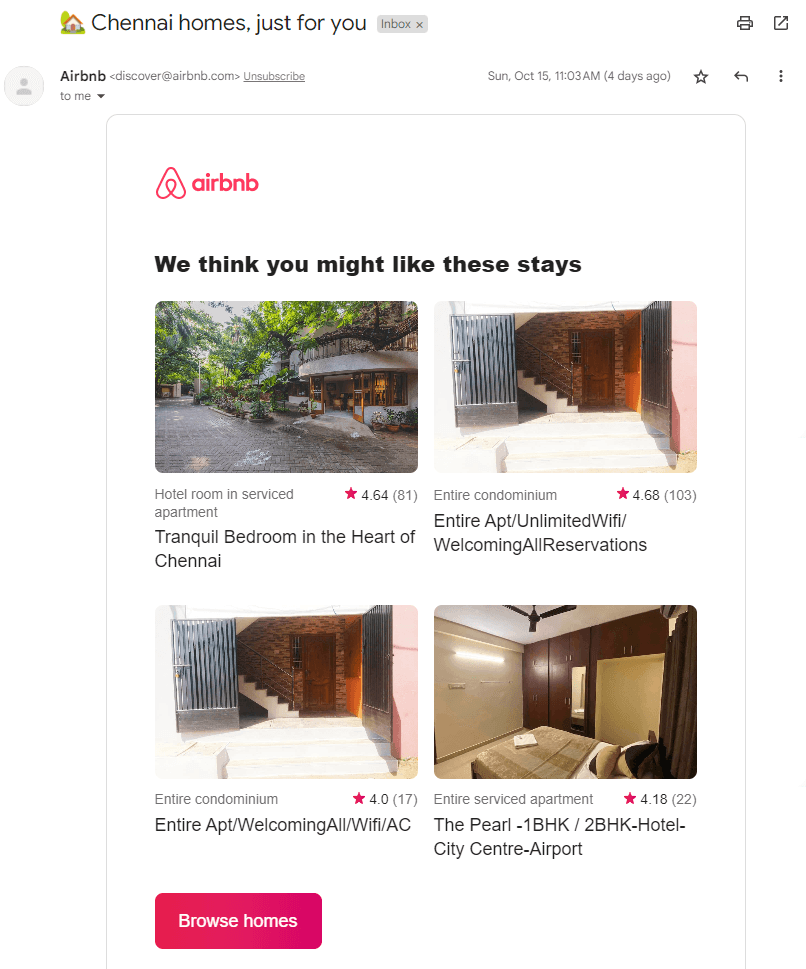
Finding out if they are ready to be converted into SQLs
With lead scoring metrics, you can find out if a lead is ready to be handed over to the sales team. The scoring can be done based on their level of engagement with your brand and marketing efforts.
For example, a lead might get 1 point each time they visit your website and 10 points each time they fill out a contact form.
You should also assign negative points when scoring leads, like minus 10 points when unsubscribed from your newsletter list.
Smooth transition
As the lead moves through the different stages of the sales pipeline, a smooth transition of leads is vital to determining your success with the leads. To ensure a smooth transition of MQLs, the marketing team must provide the sales team with a history of the lead’s engagement, which will help the sales team tailor their approach in a similar manner to the lead's previous experience, which ensures the lead is comfortable and avoids any hiccups.
Consistent messaging and follow-ups
With the MQLs successfully converted to SQLs, it is now the role of your sales team to quickly get in touch and consistently deliver a personalized experience to these leads. Sales engagement tools like Zixflow can help you assign tasks or leads to your team members and constantly remind them to follow up on those leads.
You can also monitor your team’s interactions with the leads and stay informed about all activities. This consistency, when paired with a personal touch, is most likely to result in the lead changing to a paying customer.
Why does SQL matter to sales professionals?
By now, you must understand the importance and value of SQLs. If not, here are a few reasons why SQLs matter to sales professionals.
It saves you time and money.
SQLs are the highest-valued leads, and concentrating on them means better allocation of your time and resources. The time spent on chasing leads who aren’t ready to buy is significantly reduced when the focus is on SQLs, which means an increase in productivity as well as revenue 📈.
Higher conversion rates
SQLs, by definition, are leads who are highly likely to convert, and you, of course, would love a lead who is interested in your product or service, right? So these SQLs are very likely to increase your conversion rate.
Shorter sales cycle
No one likes a long sales cycle, right? The amount of time and effort spent on low-converting leads in a long sales cycle is truly a nightmare. SQLs are qualified leads who are ready to buy your product or service. The sales cycle is typically shorter, allowing for quicker deal closure ⚡.
Enhanced customer experience
Identifying and nurturing SQLs enables your sales team to provide a personalized and relevant experience, and this makes it easy for you to increase sales using customer engagement, as a positive experience provides a healthy environment where they are likely to convert to loyal customers.
How to increase sales-qualified leads
To boost your sales pipeline and revenue, it's essential to focus on generating more sales-qualified leads (SQLs). A well-defined and refined lead qualification process is the key to achieving this goal. Let's explore the steps to improve your lead qualification process and increase the number of SQLs effectively:
Define your ideal customer profile (ICP)
Your Ideal Customer Profile (ICP) is the foundation of your lead generation efforts. It’s important to clearly define who your target audience is to generate sales-qualified leads.
You must first identify who your ideal customers are, like their needs, interests, and economic conditions.
You must then define specific criteria for segmentation, such as industry, company size, or geographic location, to tailor your marketing efforts.
Find and use the right marketing channels
Determine the channels that resonate most with your target audience and collaborate with your marketing team to take advantage of those marketing channels effectively. You can then create marketing strategies accordingly like
Content marketing
Create valuable content like blog posts, webinars, and videos, that are tailored to your target audience to generate high-quality leads who are likely to be SQLs. Brands like Zixflow and Simplilearn for example use content marketing effectively to get valuable leads through their blogs that rank on Google SERP.
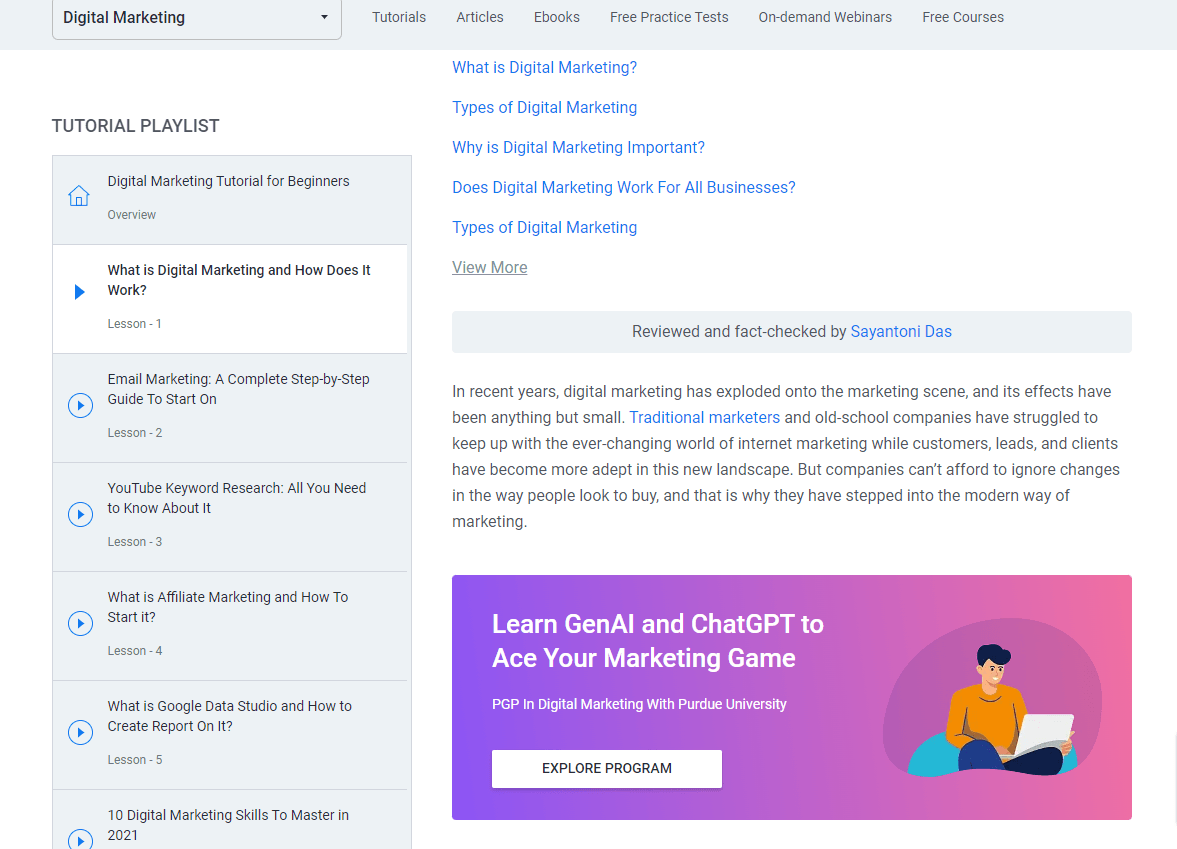
SEO strategy
Use Search Engine Optimization (SEO) to improve your website’s visibility on the search engine results page (SERP) by ranking higher to drive organic traffic to your website and generate potential SQLs who can be your future customers.
To better understand this, imagine you are a football academy in Chennai and you want people to fill up a form on your website to register for a summer camp. You can implement SEO strategies to optimize your website to rank for specific keywords to drive traffic to your website and get those leads easily generated.
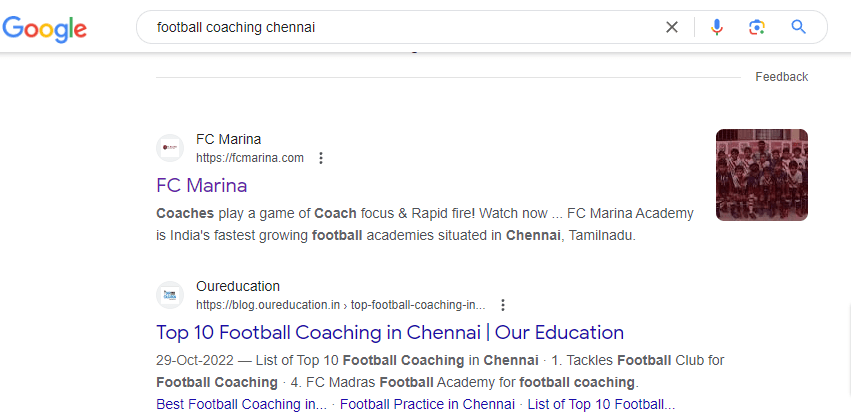
Social media engagement
Find out the social media platform your target audience uses the most to actively participate in conversations, share valuable content, and build relationships.
You can make things easier by using a social CRM which would result in an increase in engagement with your brand and an increase in the quality of leads you generate.
Companies like Zomato do an amazing job engaging their customers with content and conversation on social media platforms like Instagram and X.

Qualify the generated leads
Remember SQLs are those leads who fulfill your lead qualification checklist. So, an effective lead qualification approach that goes along with your business goals is essential to finding the high-valued SQLs from your pile of generated leads. Let me introduce to you a few of the popular lead qualification approaches used by sales experts.
BANT
The first on the list is BANT which stands for Budget, Authority, Need, and Timeline.
Budget - Do they have the financial resources to make a purchase?
Authority - Are they the decision-makers or influencers in the buying process?
Need - Is there a genuine need for the product or service?
Timeline - What is their timeline for making a purchase?
MEDDIC
MEDDIC stands for Metrics, Economic buyer, Decision criteria, Decision process, Identification of pain points, and potential Champions.
Metrics - What measurable impact will your product or service have on the lead's business?
Economic buyer - Is the lead someone with the authority to make financial decisions?
Decision criteria - What specific criteria will guide their purchase decision?
Decision process - How does the lead's organization typically approve purchases?
Identification of pain points - What challenges or pain points is the lead trying to address?
Champions - Are there individuals within the lead's organization who support your solution?
FAINT
FAINT stands for Funds, Authority, Interest, Need, and Timing.
Funds - Does the lead have the financial means to make a purchase?
Authority - Is the lead authorized to make buying decisions?
Interest - Does the lead demonstrate a genuine interest in your product or service?
Need - Is there a clear need for what you offer?
Timing - Is the lead's timeline aligned with your sales cycle?
ANUM
ANUM stands for Authority, Need, Urgency, and Money.
Authority - Is the lead in a position to make purchase decisions?
Need - Does the lead have a legitimate need for your product or service?
Urgency - Is there a pressing reason for the lead to buy now?
Money - Does the lead have the financial capability to make the purchase?
CHAMP
CHAMP stands for Challenges, Authority, Money, and Prioritization.
Challenges - Can your product or service help the lead overcome specific challenges?
Authority - Does the lead have the decision-making power?
Money - Does the lead have the financial resources?
Prioritization - Is your solution a priority for the lead's organization?
Focus on the best leads
With the SQLs identified with your lead qualification method, it is now time to go after those high-value leads and secure the deal saving you your valuable time and effort as these are high-converting leads.
How to use Zixflow to generate, manage, engage, and convert SQLs easily?
Now for the amazing tool for the sales pipeline, I promised to tell you about… well you must have guessed by the title… yup It’s Zixflow with its wide range of tools and amazing abilities to help you along your sales journey.
You can automate your lead generation process with Zixflow’s virtual form builder. Using this you can easily create highly engaging and inviting forms that can be integrated into your website to get high-quality leads that convert.
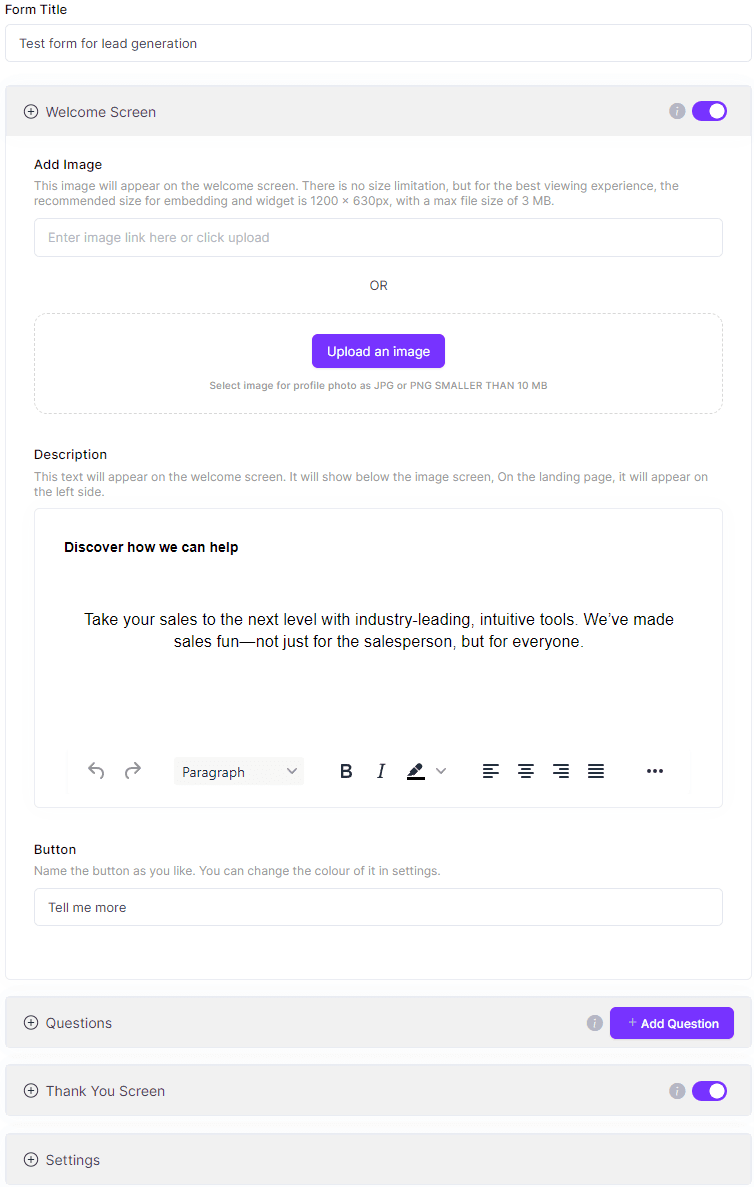
To make your workflow efficient Zixflow automatically enters the generated lead into the pipeline or a customizable list you choose, saving you time spent on manual entry. You don’t necessarily need to create these lists or pipelines from scratch, Zixflow has prebuilt industry-specific lists that are highly customizable making your life much easier.
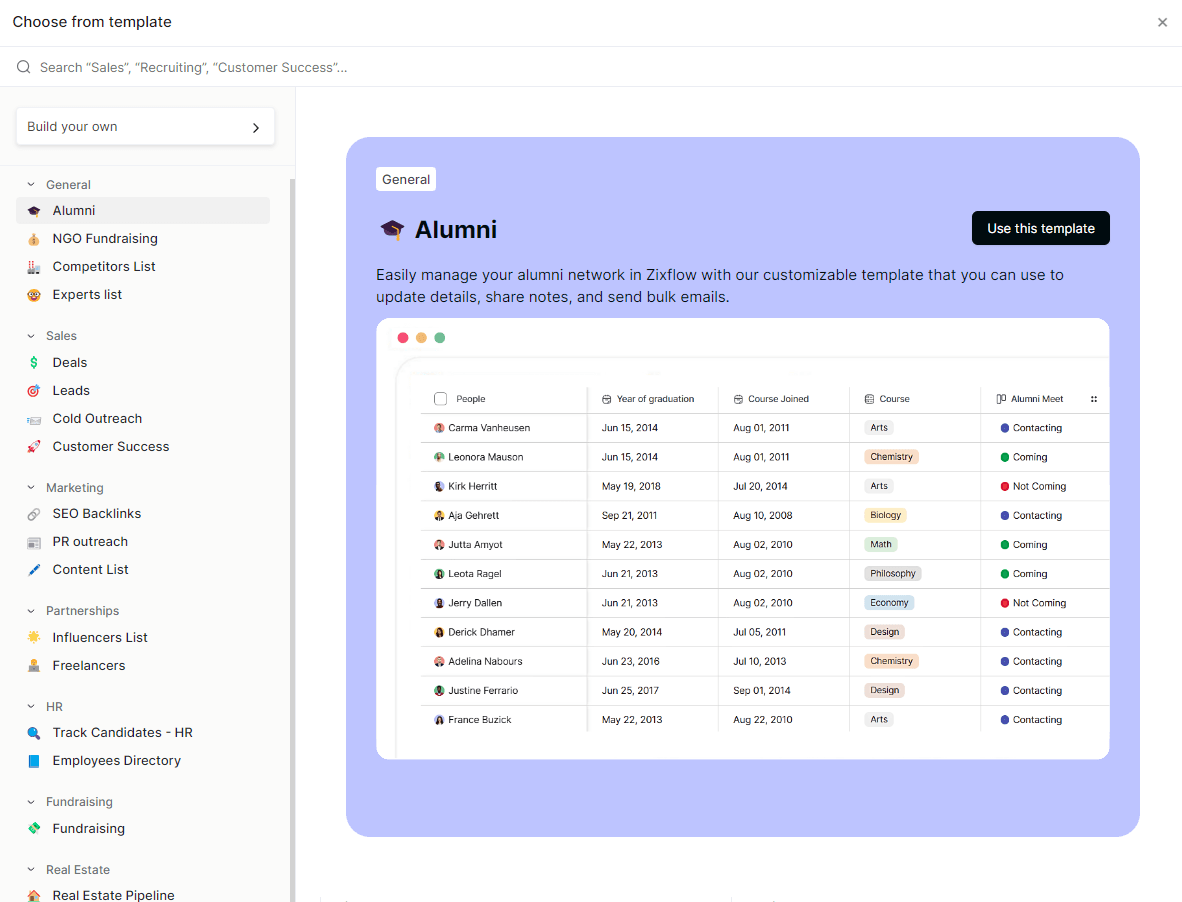
Zixflow is just built to make sales easier, it has a built-in email finder and validator tool to help you find client emails and validate them with just a click.
From there you can manage all your leads easily, Zixflow has a feature where you can easily switch from a table view to a drag-and-drop visual pipeline with just a click.
If you wish to engage with your leads and nurture them to convert to can do that with a simple click on the contact. This would give you a holistic view of your with all their past interactions and information.
From here you can add notes, view activity, call them, or reach out on the platform they use like email, SMS, or WhatsApp.
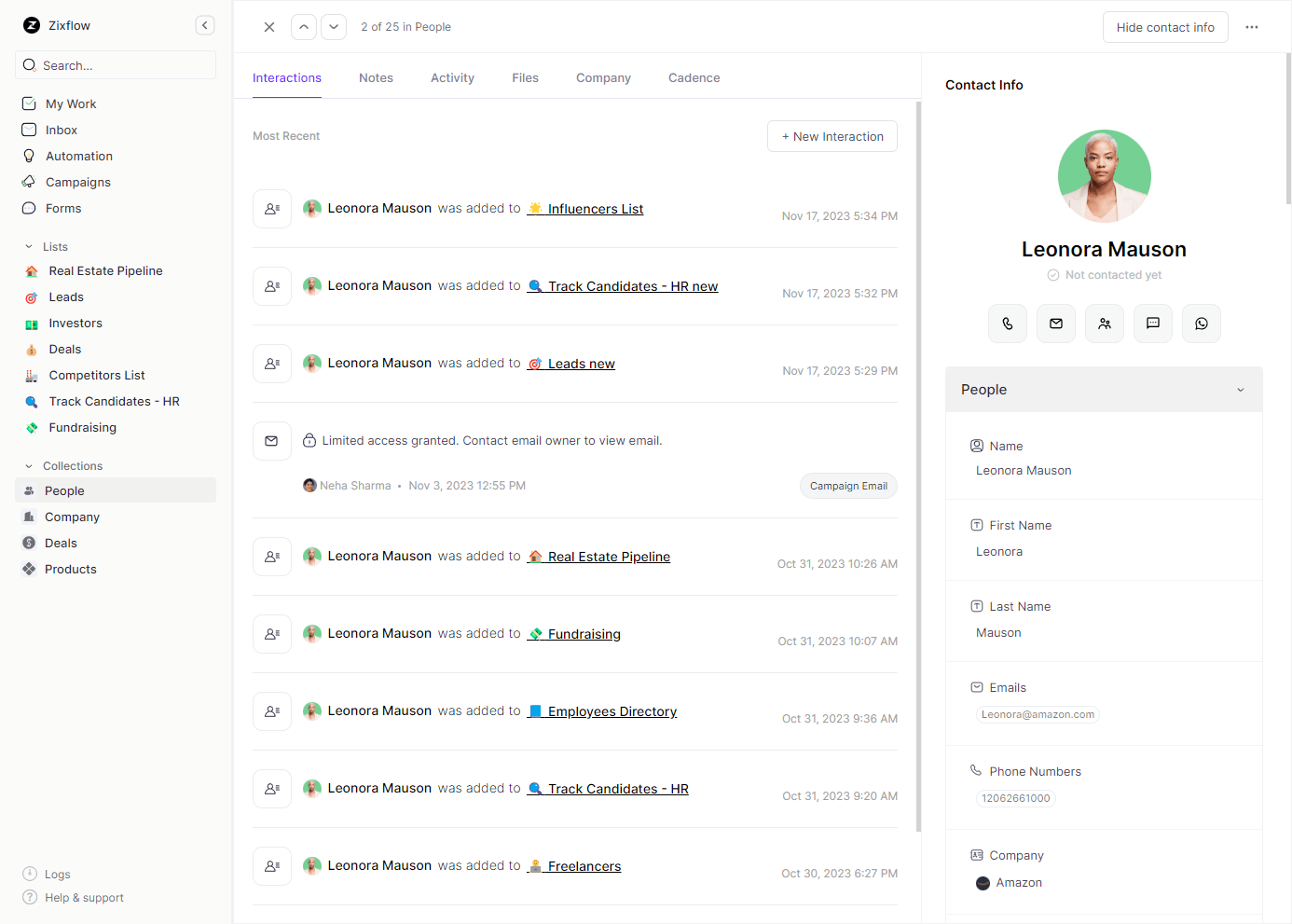
Zixflow also makes it easy to create engaging personalized emails with its AI wizard tool. This tool can also create icebreakers that are personalized for your customers which can help you create a great first impression with your MQLs which is vital in increasing the chance of conversion.
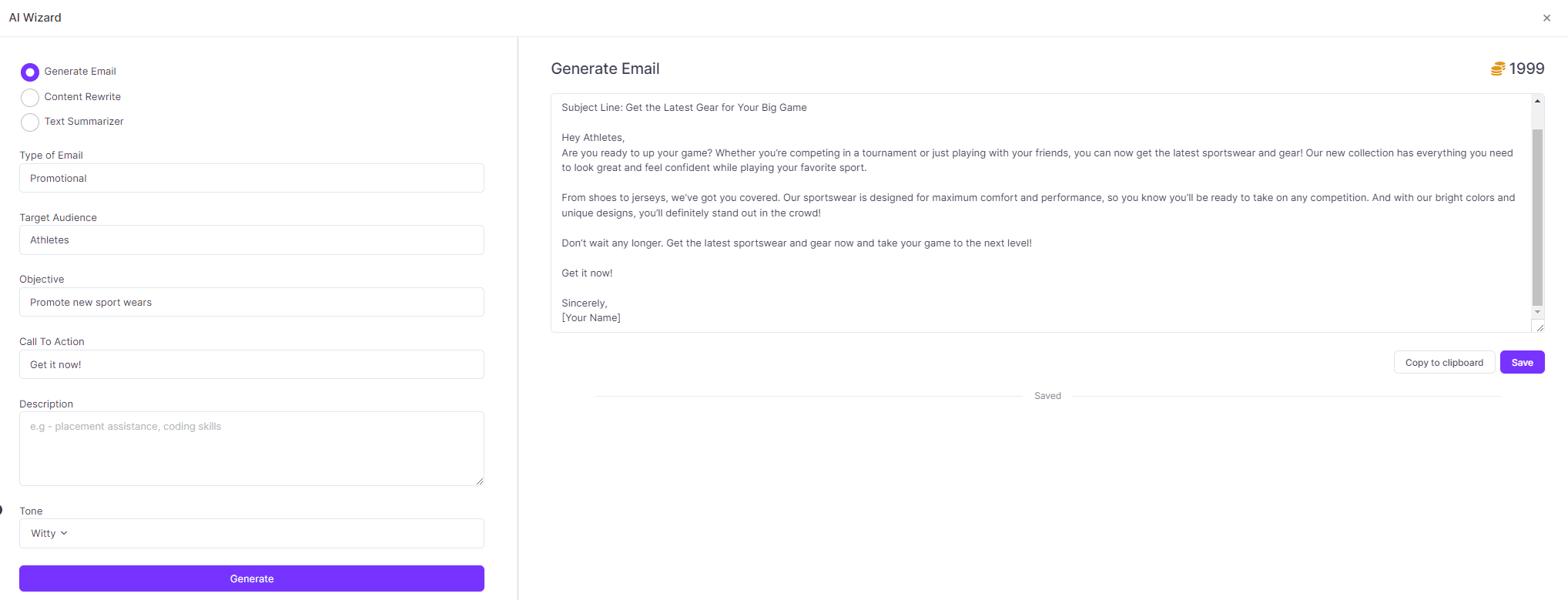
Zixflow is a perfect tool for sales reps with plenty of essential and amazing features.
Your roadmap to sales triumph starts here
A brand-new lightweight running shoe with an advanced design can help you run faster than some old heavy boots right?
SQLs are like those shoes to your sales team, a high-converting lead that can surely boost productivity and increase profit. As we reach the end of this blog you must understand quite a bit about SQLs like what they are, why they are important, how to find and increase these valuable leads, and more...
With this newfound knowledge I shared with you about SQLs, you can be well on your way toward success in your sales journey and easily achieve your sales goals.
And remember Zixflow your all-in-one solution is always here to lend you a helping hand on your sales journey. So why wait? Sign up today to get an unfair advantage over your competitors.
